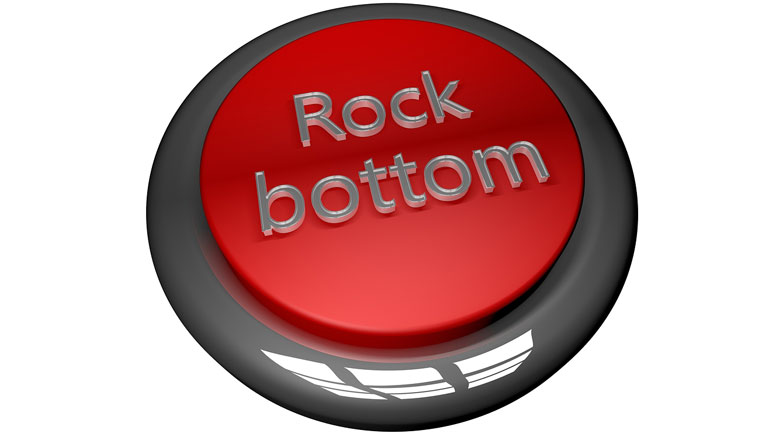How many times have I heard about hitting bottom when it comes to recovery? Phrases such as high bottoms and low bottoms and maybe she’s hit bottom now, and I hope he hits his bottom soon, and I really thought he had hit bottom after all he’s been through but he’s drinking again.
Although there is some part of me that understands that hitting bottom has some merit – I just don’t buy it. To me it is analogous to looking for that lost shoe and when you finally find it – you stop looking. Once an alcoholic comes to that point in his/her life when they stop – why does it have to be “bottom”? It is some point where many factors come together – some behavioral and maybe some medical and some life circumstances.
There are stories of those who go to rehab just once and stop drinking forever. Or are told by their physician to stop and they do – cold turkey. They have “high bottoms”. And then those who go to meetings and rehab over and over again with “low bottoms”.
I especially don’t like the hitting bottom image because so many alcoholics sink through the bottom; they don’t “hit” it and bounce back. Just last week an addict friend of a friend hanged himself. Can’t we come up with some other way to express it?
– Peg


I don’t believe in the necessity of “hitting bottom” any more than I think it’s necessary for people with sinus disease (which I have) to have an infection in every sinus before seeking treatment…we don’t treat infections, diabetes, asthma, heart disease, or cancer that way so why should we look at alcohol problems in that manner? Time for some new thinking as you rightly point out.
This post from Gabrielle Glaser is very interesting and not so concrete about what “people in recovery” mean about the importance of “hitting bottom” as the basis for vigilant pursuit to succeed in sustaining their recovery. I don’t have any answers beyond my own journey which includes ten solid years of listening to people in the 12-step rooms attest to the role of hitting bottom in their own recovery journeys. First and universal, what is meant is an “expression of gratitude” for reaching a jumping off point from the misery of substance abuse, at which the individual journey turned a corner to find a sustained “new way of living” without the drug of choice.
There are many motivations and mechanisms at work in turning this corner. These in aggregate do explain OR, at least, describe what is meant by “hitting bottom” in each individual case.
I know from listening that there is NO supreme axiom, yet many scenarios that constitute “hitting bottom”. For one person in sustained recovery, I’d say that it means effective behavior in using some fundamental “behavioral &/OR spiritual” tools/methodology that succeed with operationializing a person’s confidence that they are better off not using than using: that they have a belief or faith they’d prefer the former lifestyle based on their imprinted recollection of the misery and powerlessness of the former. It is a day-by-day reprieve in which the individual carries with them an awareness of the bottom they’ve been to, and that they do not want to go there again not matter how “absolutely rock bottom it was” relative to anyonelse’s high or low bottom. This reprieve is a relative experience that is also independent from any other friend’s or family member’s perception of the intrinsic elements of this bottom.
The recovery literature in Alcoholics Anonymous exhibits many individual testaments that often are helpful insights for other folks seeking this transformation. The terminology is various as to what is the experience of hitting bottom to a spiritual awakening, and what this may be clinically called and attributed. Some of us are pursuing the study or the human brain and consciousness and the human brain to understand and offer explanations that can point to operational methodologies for recovery.
We may have opportunities to recommend multiple journeys or treatment methodologies that deploy from outcomes of the current research and success stories deriving from our differences and similarities. We drink or abuse to seek relief for a lot of individually significant “reasons”. There is one fascinating clinical finding in recent research. A traumatic experience can be unembedded in the human brain’s recollection of “Bad” experience and expectation through electroshock treatment. The variable is to re imprint the trauma immediately prior to the shock treatment. I am often impressed by sharing in the 12-step rooms which includes an individual’s recitation of trama and futility that causes one to seek “excape” VIA substance which often leads to abuse and addiction. The AA literature says that “”and then we became alcoholics.”